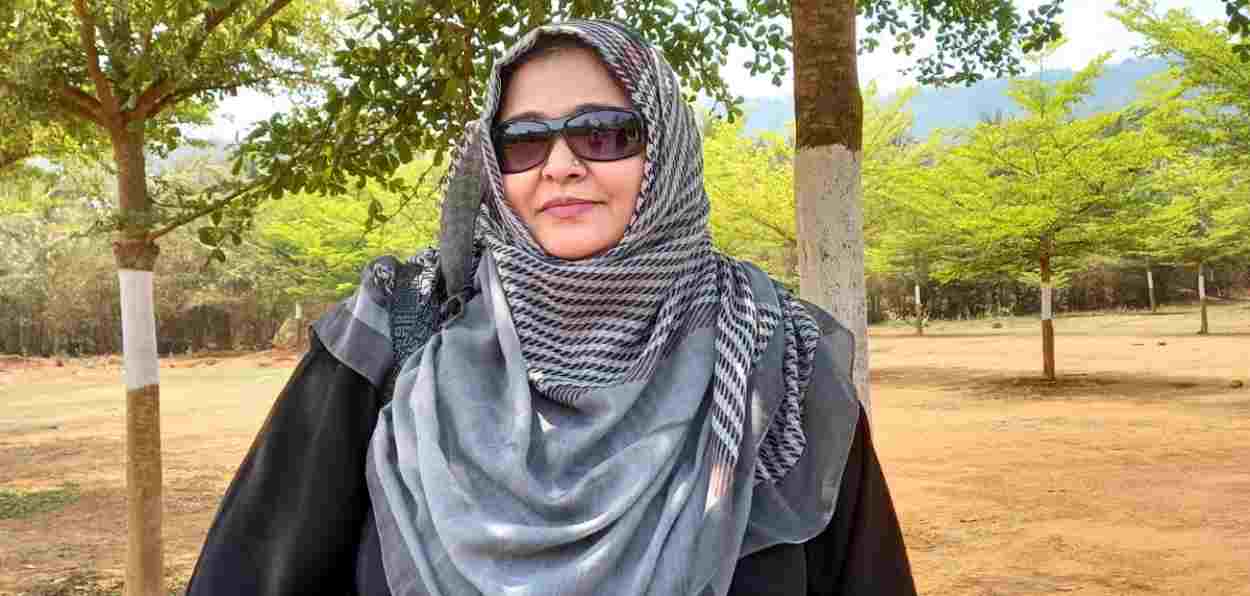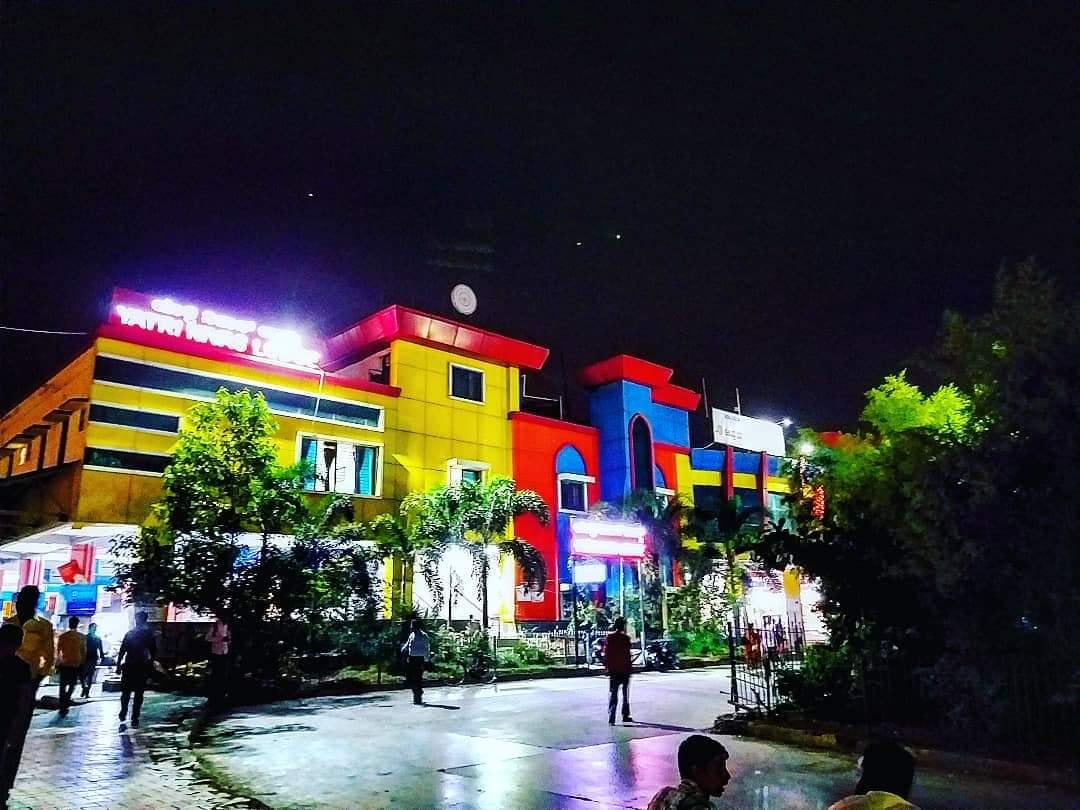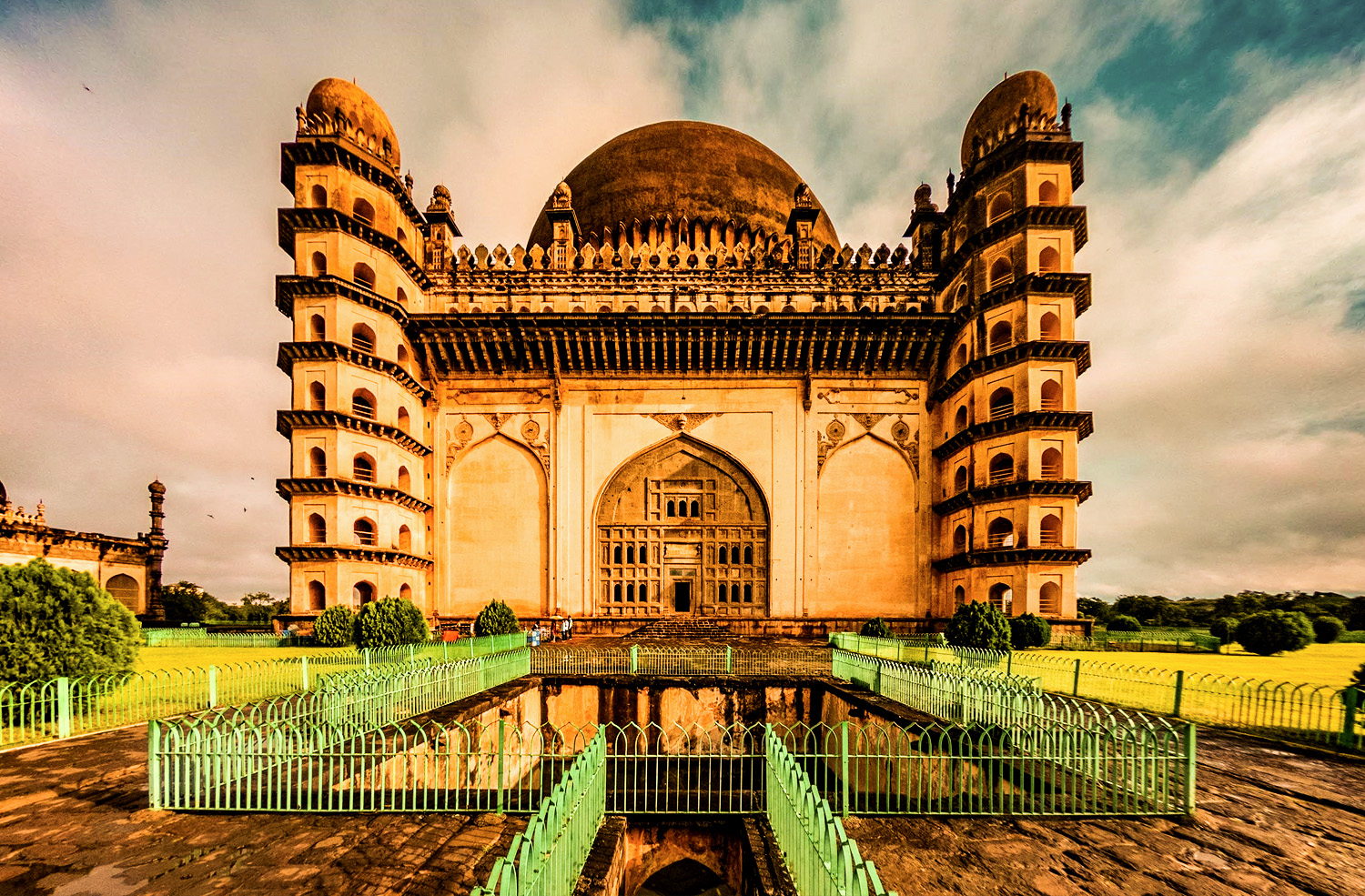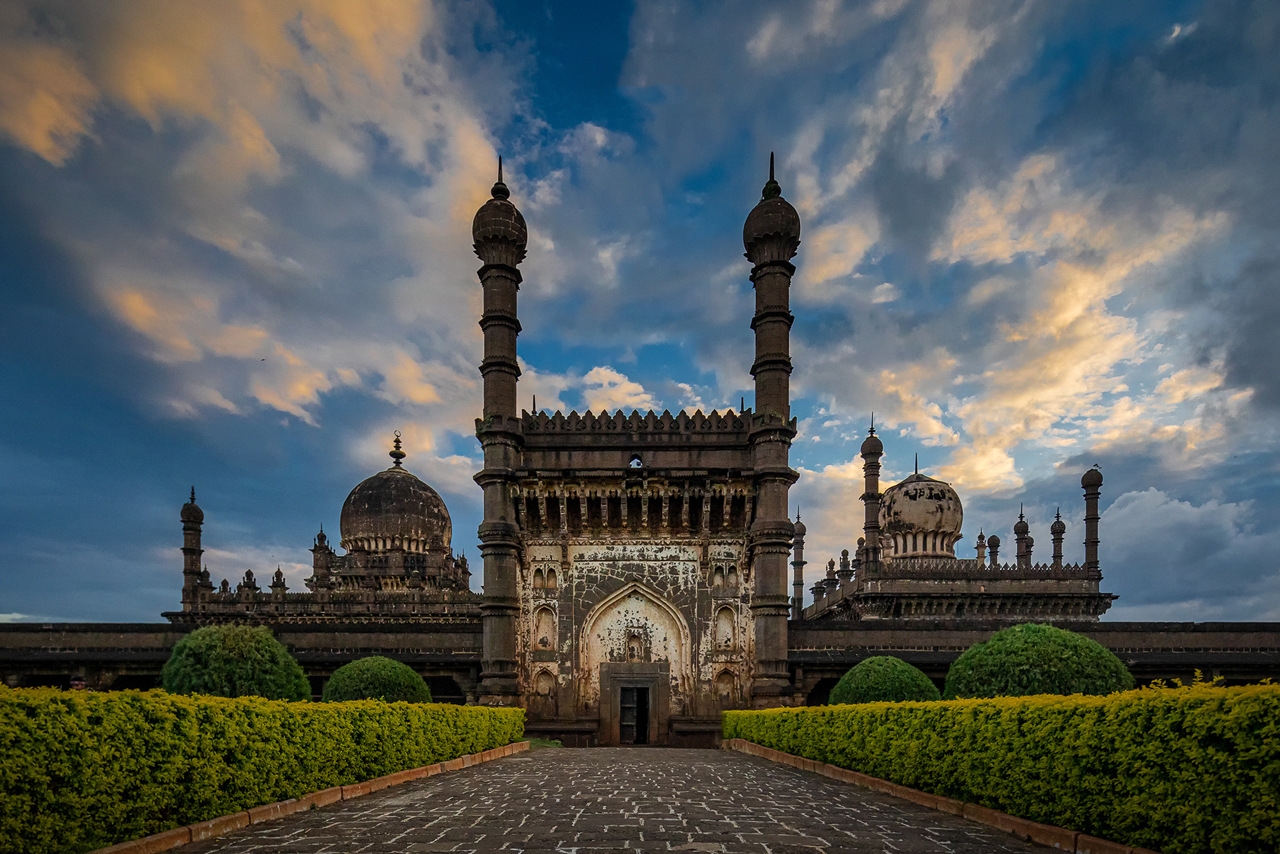
Rita Farhat Mukand
Sami Shaikh lives in Vijayapura (Bijapur), an old historical town in northern Karnataka. Today, almost a city, it was the capital of Bijapur Sultanate during the rule of the Adil Shahi dynasty in the 15th and 16th centuries. Today it is also known as the "Grape City" of India for its bumper production of the fruit. A former teacher, Sami Shaikh said that today, Vijayapura stands as a blend of its glorious past and modern aspirations. While preserving its heritage sites and traditions, the city welcomes progress and development amidst the peaceful coexistence among Hindus, Muslims, and others in the community as this city is rising as a dynamic urban center and she felt “contented and blessed” to be living there.
Speaking with Awaz-the Voice, Sami, a former teacher said serenely, “Growing up in Karnatakas Bijapur with a majority of Muslims, we have good times, shared festivals, and happy memories. Our capacity to blend in harmony - us Muslims with Hindus, Jains, Christians, and others is one of the great gifts of learning to live without friction and sets a good example to others too.”
Vibes from Hinterland
Sami, a very private person shared her picture with Awaz after a lot of perssuation yet she was happy to speak about her experiences of living in her city during the Holy Month of Ramazan. Excerpts from her conversation with Rita Farhat Mukand:
How do you remember Ramzan as a child?”
When I was a kid, I lived in Mumbai, and I remember in front of our house, there was a big compound. During Ramzan , Hindus and Muslims would set up a huge tent, and invite a Maulana to preside over Namaz, tarawhi namaz dua, and Azan. Everyone from each home would go to meet the Maulana. It was an amazing time of unity and oneness and the atmosphere was pulsating with delight. No one from any community objected to this and I remember some of these times as my happiest memories. We used to share our food, and people visited our home at Iftar to enjoy a delicious feast. Of course, many loved our mutton biryanis, fruits, and other refreshments.”
How is it in Bijapur or Vijaypura and what are the preparations for the Holy month and fasting?
Right now in Vijayapura, a couple of weeks before Ramzan, the air is buzzing with excitement in preparation for our great salah, (fast). We cannot call it a celebration, or a festival but a powerful spiritual practice that opens Heaven’s doors and we feel those joyous vibes as the time of fasting approaches, it's special. Just a month before Ramzan, we start preparations by stocking our homes with food, and all our needs and requirements for the month so that we are free from shopping trips, and other distractions during Ramzan. We also work to keep ourselves spiritually fit and eat nourishing food before the fast. We observe Rajab - the time to prepare for Ramzan – spiritually, mentally, and physically. The Prophet (PBUH) also said the month of Rajab is the month of abstinence, so it's important to seek forgiveness from Allah to gain purification and Divine nearness.

KSRTC Bus Stand of Vijaypura (Facebook)
…And, what else?
During this time in Vijayapura, the markets are flooded with commodities. Ramzan is a blissful blessed time and local Hindu vendors are especially kind to us this month, offering big discounts on fruits and vegetables and showing concern because they know it’s our month of fasting and they want to make it as easy as possible for us. We, of course, have to visit markets for a few requirements when we break our Roza (fast) for our iftar (fast-breaking evening meal), but we try to avoid as much unnecessary activity as possible. In fact, unlike the older days when women were busy in kitchens all the time preparing lavish meals for iftar, nowadays, women are more aware that all that time in the kitchen is hindering them from experiencing a richer prayer time. We all keep it simple by breaking our fasts with either dates and milk or parathas, bread and tea, or some other light food. Mutton may be cooked once a week, but we do not indulge in too much eating at Iftar.
What are some of your favourite times of Ramzan ?
Well, for me, one of the most wonderful parts of the day particularly is the Ijtema when we all unite, ladies gather, men gather, read the holy Quranic verses, share stories, and interact with each other for 30 days. It is a very spiritual time and we get more blessings when we do this, and once again at around 9- 10 p.m., we go to the masjid to pray. When we do this, it is almost like we gain fifty percent spiritual marks from Heaven! When we finally reach home at around 11 at night, we feel very peaceful and happy!
Do you face any troubles during Ramzan, like people trying to disturb you during your prayer times?
I can say with absolute conviction that we have good peace and harmony in Vijayapura, our township of different religions is very united. If there are some rare incidents of any Hindu-Muslim conflicts, it is always from elements that come from outside, we don’t even know who they are, but they stir trouble and disappear and no one knows who they are. It is always wonderful to see how caring the township is. Our landlord is a Hindu and he is so cooperative, so helping, whatever we need anything, our house landlord's family always comes forward to help us first. Last week there were rumours of a band of robbers or chori gangs in the town and since my husband was out of town, they especially warned me to lock the door and keep our child’s bicycle indoors.
 Gol Gumbaz, Vijaypura (Kartanaka Tourism)
Gol Gumbaz, Vijaypura (Kartanaka Tourism)
What is your routine on a day during the Holy month?
I get up at 3:30 for the Namaz and prepare food for the people who want to keep Roza. As a family, we keep it light in the morning and I make either chappati, or tea and bread, paratha, or khajur (dates) and milk and after prayers, some may take a nap after 6 a.m. but the usual activities go on. Working people go to work. When we break our roza, we eat simple food such as milk, curd, green vegetables, and not mutton regularly. We don’t take a drop of water so when we break our fast, the first thing we want is water even though the table is filled with food. When a fasting person drinks water, it tastes like a heavenly drink, unearthly, water is so precious.
It surely requires a lot of self-discipline not to drink even water...
Yes, there is a lot of discipline, but even a young child when taught the benefits of fasting, will not even take a drop of water if offered to them. During this time, even though many of us go to work, we have to even fast for abstaining from doing anything wrong, no backbiting, quarreling, watching movies, and no celebrations or any events are conducted, as we are all spending our time in prayers, so there is a lot of spiritual discipline. It is as if during Ramzan we are like soldiers doing our tasks and then we get increments and rewards for completing it. When we exercise the discipline of fasting or practice any form of spirituality, we inculcate this habit, such as reciting the Quran is inculcated to turn into a habit and the whole year will follow this rule. The practice of fasting keeps us more disciplined and we learn to practice self-control.
Non-Muslim readers would like to know why is Rajab so important.
Rajab is believed to be the night in which the beloved Prophet ventured on the well-known night journey and ascension, also known as Shab-e-Meraj. He recited detailed supplications, seeking Allah's mercy and forgiveness. Believers are urged to imitate this tradition by offering sincere prayers for forgiveness, mercy, relief from suffering, and provision.
 Ibrahim Roza Monument, Vijaypura (Karnataka Tourism)
Ibrahim Roza Monument, Vijaypura (Karnataka Tourism)
Also, what is Laylat al-Bara'at?
Barat, also known as Laylat al-Bara'at, is the night when Allah determines the destiny of all creatures for the coming year. There is no specific requirement or obligation to fast for either of these events in Islam. Many will utilize the 15th Shaban, or Shab e Barat 2023, for prayer, others will fast during the day, and some will engage in dhikr all night long. Laylat al-Qadr is to be seen in the last ten odd-numbered nights of Ramzan but mostly on the 19th, 21st, or 23rd of Ramadan with the 23rd being the most meaningful night.
ALSO READ: Ramzan begins as Christians are also observing 40-day holy Lent
Do you feel there is a lot of peace and grace around Ramzan or is it tough and a time of struggle?
It is a very glorious time, we feel energized. Even if we may feel hungry at the start of the fast, there is grace for those who have problems and cannot continue. We say we cannot hide anything from Allah because He is all-knowing, He sees everything, nor can we hide and eat, He is also very merciful. Oh yes, if someone cannot fast because they are old, sick or even dying, there is no compulsion to fast. If someone cannot fast, they can give help or money to others and can fast at a later date when able to. If one cannot fast but gives money to a poor person, that person can carry on fasting on their behalf. We utilize this period to reflect on all the blessings we have while the poor people don’t have food so this is a special time of giving and sharing with the poor, feeding the poor, and giving them money called zakat. Whatever Allah has given us, it is His blessing, and it is a time we are to look down to seek the the poor to help them.
Rita Farhat Mukand is an independent writer
